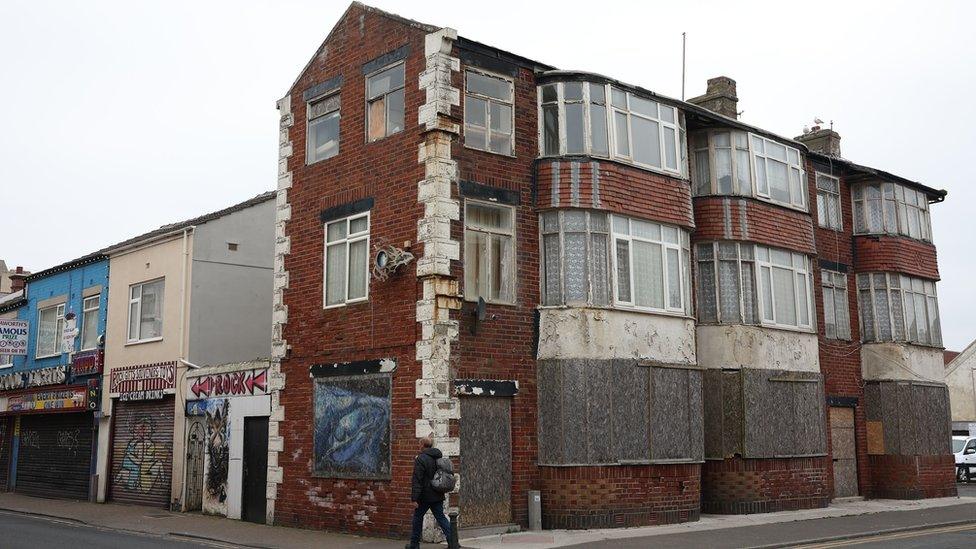New rules and rising costs 'forcing landlords out'

High interest rates and red tape have been blamed for landlords leaving the rental sector
- Published
The number of "desperately needed" houses in multiple occupation across north-west England is falling, new figures have revealed.
The houses (HMOs) see people who are not related sleeping in separate rooms but sharing facilities such as kitchens or bathrooms.
The number of licensed HMOs in the region nearly trebled between 2013 and 2018, but over the last three years there has been a dip, according to figures from councils compiled by property experts Searchland.
The National Residential Landlords Association (NRLA) has warned the government it was becoming "significantly more difficult" for landlords to operate the homes.

Graduate Jack Benson is a tenant in a HMO in Liverpool
It said new regulations, high interest rates, inconsistent licensing regulations and unfavourable tax policies had forced many landlords to sell the "desperately needed" homes.
There were nearly 9,500 licensed HMOs across north-west England last year, more than ever, but Searchland said they had begun to slow down.
HMO managing agent Wendy Whittaker-Large said "more and more paperwork and more and more administration" was "putting many people off wanting to invest".
The NRLA said licensing had "a role to play in ensuring the safety of rented property", but the government "must act urgently" to enable landlords to stay in the private rented sector to increase the availability and affordability of homes.
New legislation introduced in 2018 meant all HMOs housing five or more people from two or more separate households must be licenced by the local authority, and requires the landlord to agree to a series of conditions and allow their properties to be inspected and certified.
The government said the legislation would "raise standards".
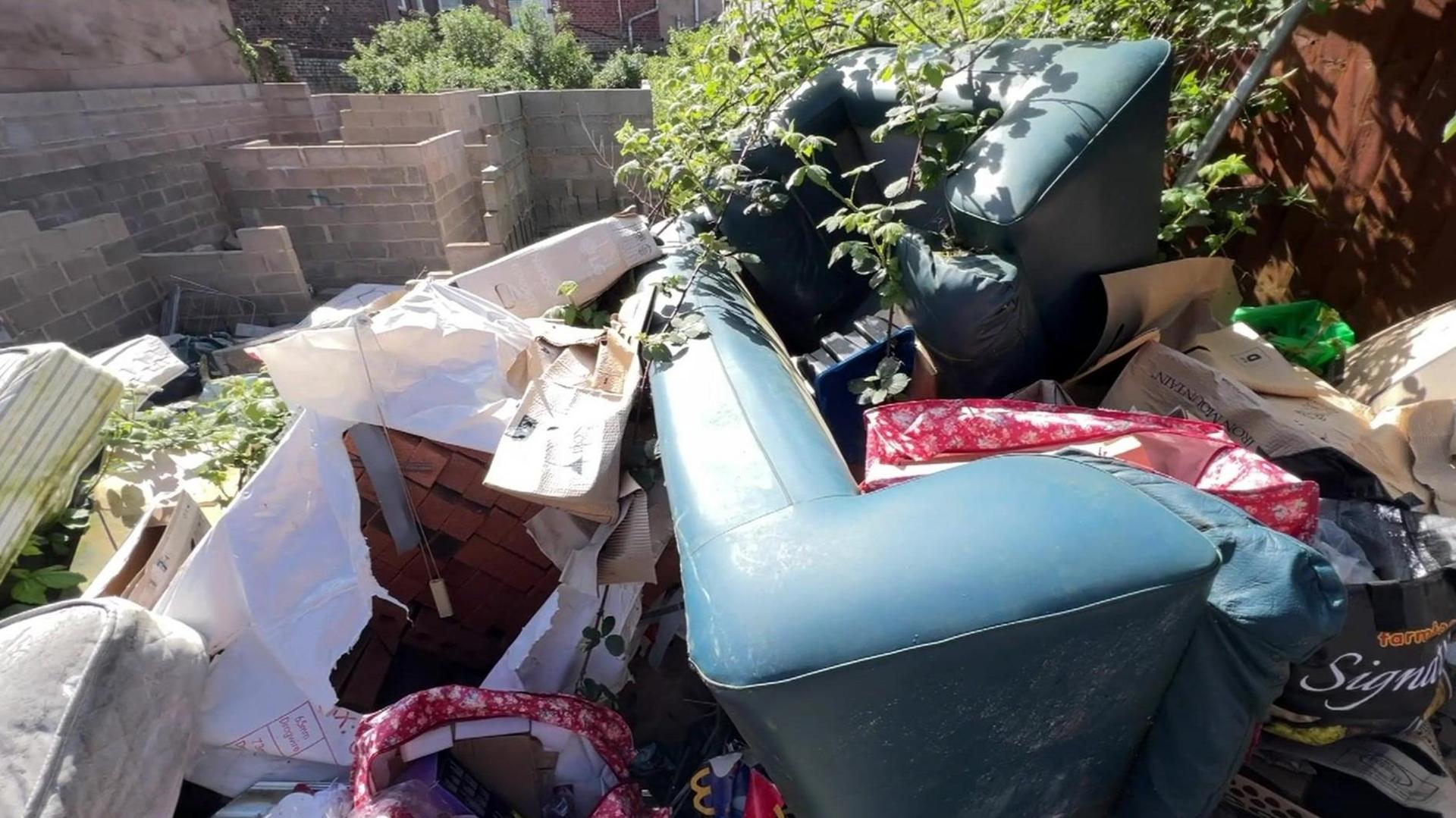
Concerns have been raised about HMOs leading to fly-tipping and other antisocial behaviour
However, a high concentration of HMOs in some areas have been linked with anti-social behaviour and fly-tipping - while concerns have been raised about the standard of some housing.
Marianne Marsh has lived in the terraced streets of Stoneycroft in Liverpool for nearly 25 years - but said she had noticed big changes over the last seven years.
A mountain of sofas, mattresses, mangled furniture and even a large TV could be seen piled on a plot of vacant land in between the Victorian houses that make up her neighbourhood.
Ms Marsh said fly-tipping had happened far more since more of the houses around her had been turned into HMOs.
"It has definitely escalated," she said.
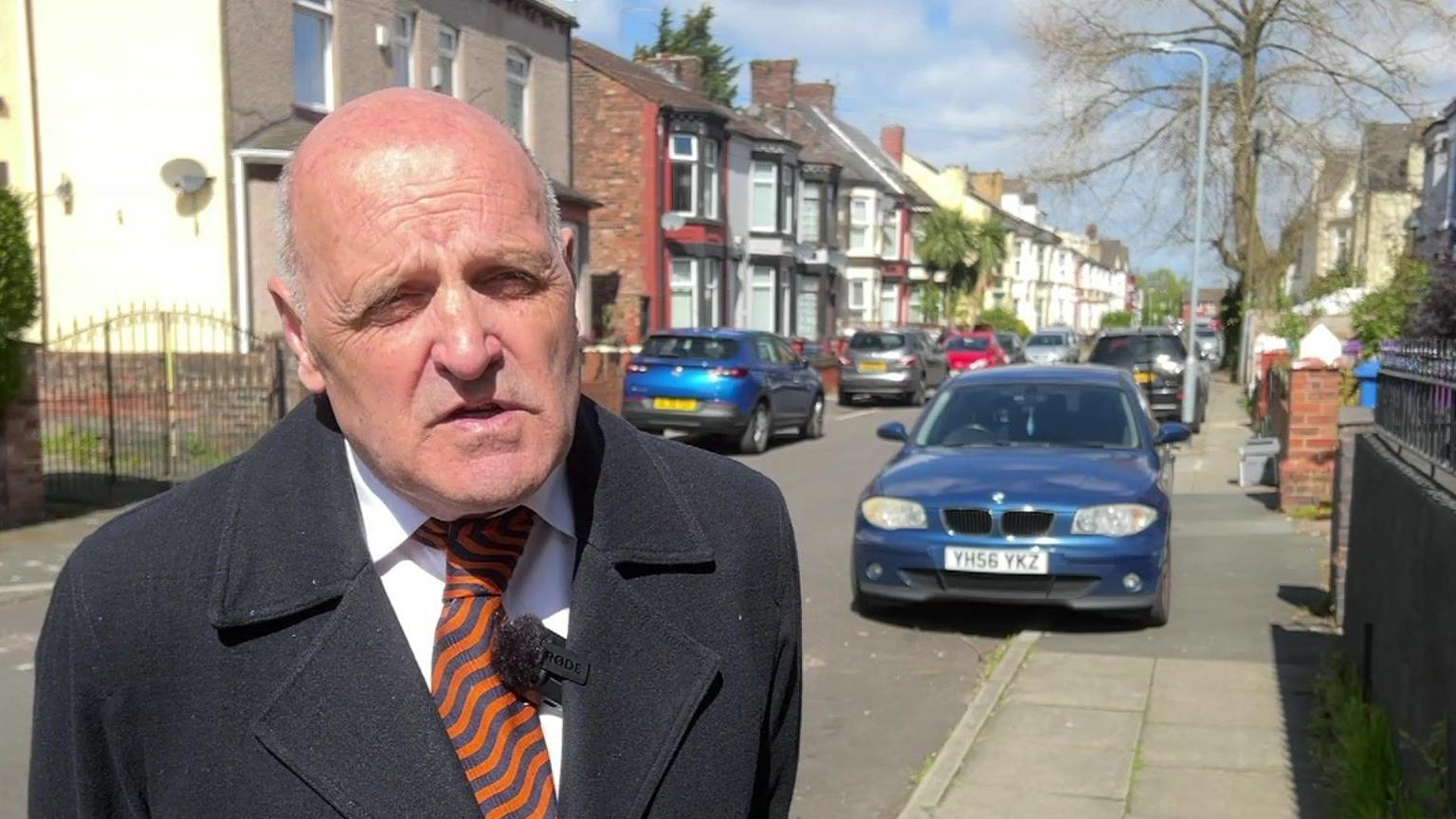
Councillor Steve Radford has voiced concerns about the state of some the streets in his area
Stoneycroft ward councillor Steve Radford said fly-tipping and anti-social behaviour resulted in a "demoralised community".
The leader of Liberal group said many HMOs had "absentee" landlords leading to "neglected" properties, and claimed Liverpool City Council was not enforcing many of the regulations meant to govern HMOs.
The council said: “HMOs with five or more occupants are subject to mandatory licensing and we inspect them for conditions, standards and safety.
"Tenants can complain about conditions or management of their privately rented home.
"Additionally we provide support for landlords with guidance on property standards.
"We use a range of legislative enforcement powers to ensure landlords and letting agents do not let unsafe housing to tenants."
The council also said it had recently prosecuted two letting agents for poor HMO management and launched a specialist team investigating rogue landlords and agents.
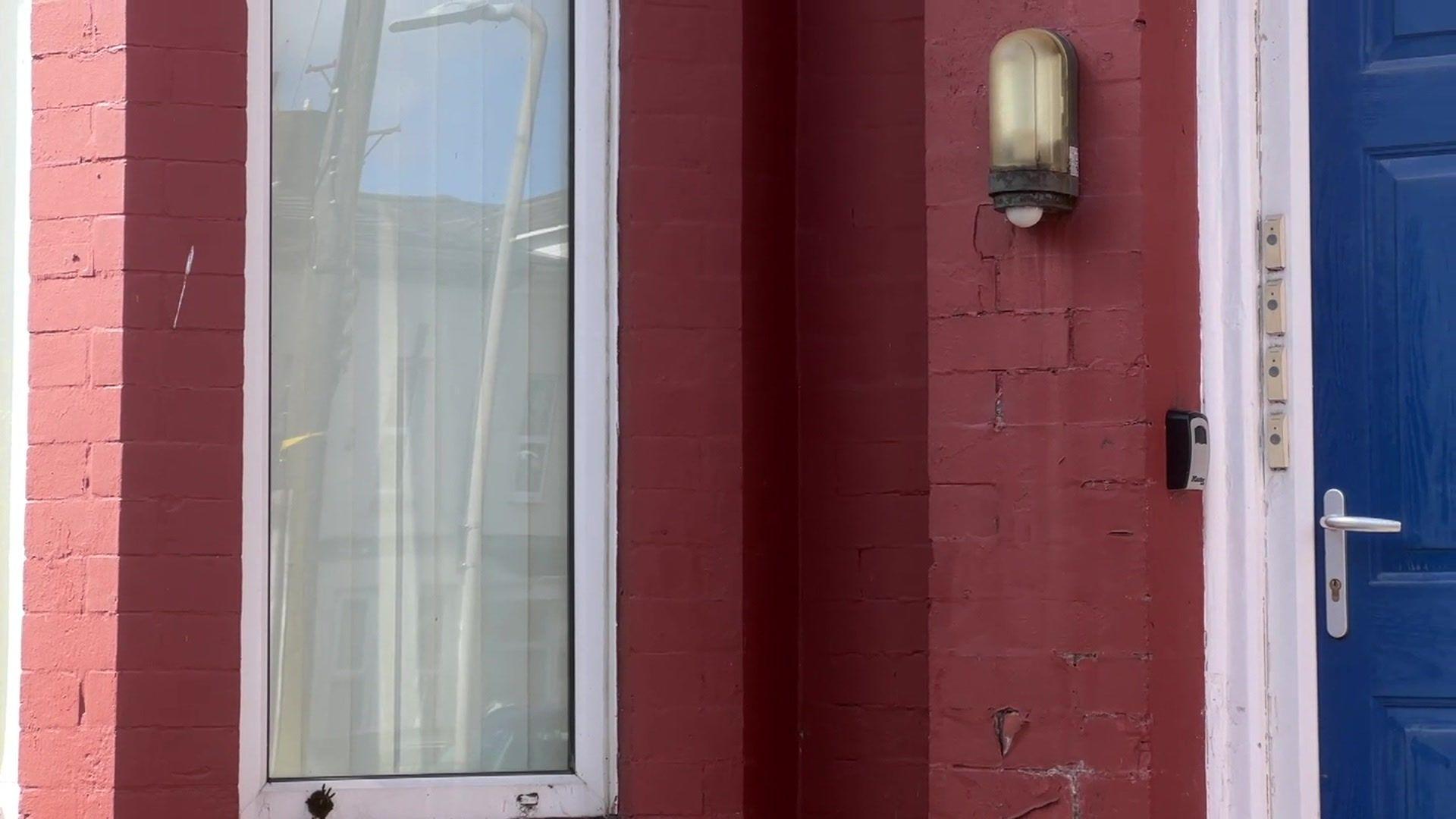
The number of new licences issued for HMOs is slowing down in north-west England
Jack Benson, 22, is a graduate insurance broker living in an HMO in Garston, Liverpool, because he said the cost of renting his own flat was "ridiculous for what you're getting".
He said he felt he was still "living like a student".
"I've got this professional picture in my head of what I am at work, and then I come home and that picture's just completely gone," he said.
"It just brings me right back down to earth. It's just a complete change."
A spokesman for the Department for Housing said “everyone deserves to live in a safe and decent home" and it was determined to "crack down on rogue landlords".
He added: “We have put measures in place that make it easier for councils to effectively tackle unlicensed HMOs, introducing civil penalties of up to £30,000 and rent repayment orders for a range of offences."
Listen to the best of BBC Radio Merseyside on Sounds and follow BBC Merseyside on Facebook, external, X, external, and Instagram, external.You can also send story ideas to northwest.newsonline@bbc.co.uk, external
Related topics
- Published20 May 2024

- Published27 March 2024
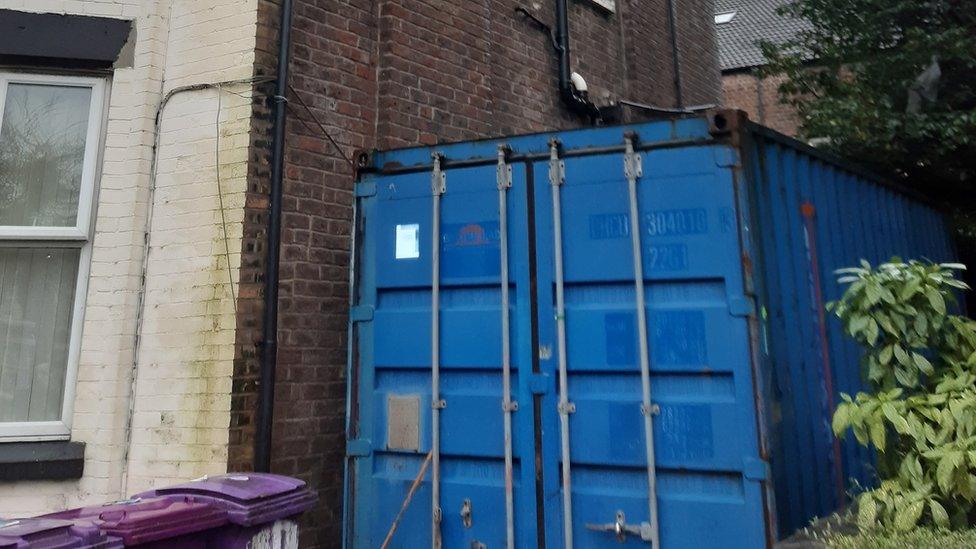
- Published15 May 2024
